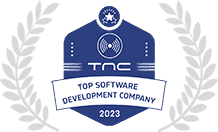In the rapidly evolving landscape of business operations, financial management remains a critical component for organizational success. Traditional financial management systems often struggle with scalability and real-time data access, hindering decision-making processes. Enter NetSuite’s Cloud ERP, a solution designed to address these challenges. As an all-in-one management suite, NetSuite integrates financials, CRM, e-commerce, inventory, and more into a unified platform, enabling businesses to streamline operations and enhance financial visibility.
NetSuite’s Cloud ERP is specifically tailored for businesses looking to modernize their financial management practices. By leveraging cloud technology, it eliminates the complexities associated with on-premise systems, such as high maintenance costs and lengthy deployment times. This article explores how NetSuite’s Cloud ERP transforms financial management, providing businesses with the tools they need to thrive in today’s competitive environment.
The Role of Cloud ERP in Financial Management
Cloud-based Enterprise Resource Planning (ERP) systems like NetSuite are redefining how organizations approach financial management. By centralizing data in a single cloud platform, NetSuite ensures that financial information is not only accessible but also up-to-date. This shift from traditional systems to cloud-based solutions facilitates more accurate forecasting, budgeting, and reporting.
Benefits of Cloud ERP for Financial Management
- Real-Time Data Access: With NetSuite, financial professionals can access real-time data from anywhere, enabling timely decision-making.
- Scalability: As businesses grow, their financial needs evolve. NetSuite’s Cloud ERP can easily scale to accommodate increasing transaction volumes and user demands without compromising performance.
- Cost-Effectiveness: By reducing the need for extensive IT infrastructure, companies can save significantly on operational costs, reallocating resources to other strategic initiatives.
- Enhanced Collaboration: With cloud technology, teams across various departments can collaborate seamlessly, improving the accuracy of financial data and insights.
- Automated Processes: NetSuite automates repetitive financial tasks such as invoicing, reporting, and reconciliation, freeing up time for finance teams to focus on strategic activities.
Key Features of NetSuite’s Cloud ERP for Financial Management
NetSuite’s Cloud ERP offers a suite of features tailored to streamline financial management processes. Understanding these features helps businesses leverage the platform effectively to enhance their operations.
1. Unified Financial Management
NetSuite provides a comprehensive financial management solution that integrates core financial processes, including accounts payable, accounts receivable, general ledger, and financial reporting. This unified approach ensures that all financial data is interconnected, reducing the chances of errors and discrepancies.
2. Advanced Financial Reporting and Analytics
The platform’s robust reporting tools empower finance teams to create customized reports and dashboards that provide real-time insights into financial performance. With advanced analytics, users can identify trends, assess financial health, and make data-driven decisions.
3. Budgeting and Forecasting
NetSuite’s budgeting and forecasting features allow organizations to create and manage budgets based on real-time data, leading to more accurate financial projections. This functionality enhances strategic planning and enables businesses to adapt quickly to changing market conditions.
4. Multi-Currency and Multi-Tax Capabilities
For businesses operating globally, managing multiple currencies and tax regulations can be a daunting task. NetSuite simplifies this process with built-in multi-currency support and tax compliance features, ensuring that financial operations are seamless regardless of geographic location.
5. Integrated Compliance Management
NetSuite’s Cloud ERP helps organizations maintain compliance with various financial regulations, such as GAAP and IFRS. The platform provides tools for auditing, documentation, and reporting, making it easier for businesses to adhere to regulatory requirements.
Transforming Financial Processes with Automation
Automation is a key component of NetSuite’s Cloud ERP, driving efficiency and accuracy in financial processes. By automating routine tasks, organizations can reduce the risk of human error and ensure that financial data is consistently up-to-date.
1. Streamlined Invoicing and Payments
NetSuite automates the invoicing process, allowing businesses to generate and send invoices quickly. The system also supports automated payment reminders, ensuring that customers are notified of upcoming payments, which helps improve cash flow.
2. Automated Reconciliation
Bank reconciliations can be time-consuming and prone to errors. NetSuite automates this process by matching transactions against bank statements, significantly reducing the time spent on manual reconciliations.
3. Real-Time Financial Monitoring
With real-time dashboards, finance teams can monitor financial performance continuously. This feature enables organizations to identify anomalies and address issues proactively, rather than reactively.
4. Workflow Automation
NetSuite allows users to automate financial workflows, such as approvals and notifications. This automation enhances accountability and ensures that processes are followed consistently.
Enhancing Financial Visibility and Control
Financial visibility is essential for effective decision-making. NetSuite’s Cloud ERP provides businesses with the insights they need to understand their financial health comprehensively.
1. Comprehensive Dashboards
NetSuite’s customizable dashboards display key performance indicators (KPIs) and financial metrics at a glance. This visualization helps stakeholders quickly assess the company’s financial status and make informed decisions.
2. Detailed Financial Analytics
Advanced analytics capabilities within NetSuite allow organizations to drill down into financial data, uncovering insights that drive strategic initiatives. Users can analyze profitability by product line, department, or customer segment, enabling targeted decision-making.
3. Scenario Planning
NetSuite supports scenario planning, allowing businesses to model various financial outcomes based on different assumptions. This feature empowers organizations to evaluate potential risks and opportunities effectively.
4. Collaboration Tools
NetSuite fosters collaboration among finance teams and other departments. Integrated communication tools enable users to share insights and documents seamlessly, promoting a culture of transparency and cooperation.
Case Studies: Real-World Impact of NetSuite’s Cloud ERP
To understand the transformative power of NetSuite’s Cloud ERP, let’s explore a few case studies that illustrate its impact on financial management.
Case Study 1: A Retail Company Streamlines Financial Operations
A retail organization faced challenges with disparate financial systems that hindered real-time reporting and collaboration. By implementing NetSuite’s Cloud ERP, the company achieved a unified financial platform, resulting in a 30% reduction in month-end closing time. Real-time dashboards provided executives with immediate insights into sales and expenses, facilitating better decision-making.
Case Study 2: A Manufacturing Firm Enhances Compliance
A manufacturing company struggled with compliance due to complex regulations and manual processes. With NetSuite’s integrated compliance management tools, the company streamlined its financial reporting, ensuring adherence to industry standards. As a result, it reduced compliance-related fines by 40%, demonstrating the effectiveness of automated compliance management.
Case Study 3: A Global Enterprise Improves Cash Flow
A multinational enterprise operating in multiple currencies found it challenging to manage cash flow efficiently. NetSuite’s multi-currency capabilities enabled the organization to streamline its invoicing and payment processes across borders. The result was improved cash flow management and a 25% reduction in outstanding receivables.
Conclusion: The Future of Financial Management with NetSuite’s Cloud ERP
NetSuite’s Cloud ERP is more than just a financial management tool; it is a comprehensive solution that transforms how organizations approach their financial processes. By leveraging real-time data, automation, and advanced analytics, businesses can enhance their financial visibility, control, and decision-making capabilities. As organizations continue to navigate the complexities of the modern business landscape, NetSuite’s Cloud ERP will play a crucial role in enabling financial transformation and driving sustainable growth.
FAQs about NetSuite’s Cloud ERP and Financial Management
1. What is NetSuite’s Cloud ERP?
NetSuite’s Cloud ERP is a cloud-based software solution that integrates various business processes, including financial management, CRM, and e-commerce, into a single platform.
2. How does NetSuite improve financial management?
NetSuite enhances financial management through real-time data access, automation of processes, and advanced reporting capabilities, enabling better decision-making.
3. Can NetSuite support global businesses?
Yes, NetSuite offers multi-currency and multi-tax capabilities, making it suitable for global organizations.
4. What features help with compliance management?
NetSuite provides tools for auditing, documentation, and financial reporting to ensure compliance with regulations like GAAP and IFRS.
5. How does automation benefit financial teams?
Automation reduces manual tasks, minimizes errors, and allows finance teams to focus on strategic activities rather than routine processes.
6. What types of reports can be generated with NetSuite?
NetSuite allows users to create customized reports and dashboards tailored to their specific financial metrics and KPIs.
7. Is training required for NetSuite users?
While NetSuite is user-friendly, training is recommended to maximize its potential and ensure users are comfortable navigating the platform.
8. Can NetSuite integrate with other software?
Yes, NetSuite offers integration capabilities with various third-party applications and services to enhance business processes.
9. How does NetSuite handle budgeting?
NetSuite’s budgeting tools allow organizations to create, manage, and analyze budgets based on real-time data for more accurate forecasting.
10. What is the significance of real-time data in financial management?
Real-time data provides organizations with up-to-date insights, enabling timely decisions and improved financial forecasting.
11. Does NetSuite offer mobile access?
Yes, NetSuite’s cloud-based nature allows users to access the platform from any device with internet connectivity, including mobile devices.
12. How does NetSuite enhance cash flow management?
NetSuite automates invoicing and payment reminders, helping businesses manage cash flow more effectively and reduce outstanding receivables.
13. What is scenario planning in NetSuite?
Scenario planning allows users to model different financial outcomes based on varying assumptions, aiding in risk assessment and decision-making.
14. Can NetSuite help with financial audits?
Yes, NetSuite’s compliance management tools facilitate easier auditing and documentation, making it simpler to prepare for audits.
15. How does NetSuite support collaboration among teams?
NetSuite includes integrated communication tools that promote sharing insights and documents, enhancing teamwork across departments.
16. What types of businesses benefit from NetSuite?
NetSuite is suitable for businesses of all sizes and industries, including retail, manufacturing, e-commerce, and professional services.
17. Is NetSuite customizable?
Yes, NetSuite can be customized to meet the specific needs of an organization, allowing for tailored workflows and processes.
18. How does NetSuite ensure data security?
NetSuite employs robust security measures, including data encryption, access controls, and regular security updates to protect sensitive financial information.
19. What kind of support does NetSuite provide?
NetSuite offers various support options, including online resources, training programs, and customer service to assist users.
20. How can a business get started with NetSuite?
To get started, businesses can contact NetSuite’s sales team for a demo, discuss their specific needs, and explore implementation options.
- How to Optimize Inventory Management with NetSuite - October 4, 2024
- Best Practices for Customizing NetSuite to Meet Business Needs - October 4, 2024
- How to Successfully Migrate Your Business Data to NetSuite - October 4, 2024




















